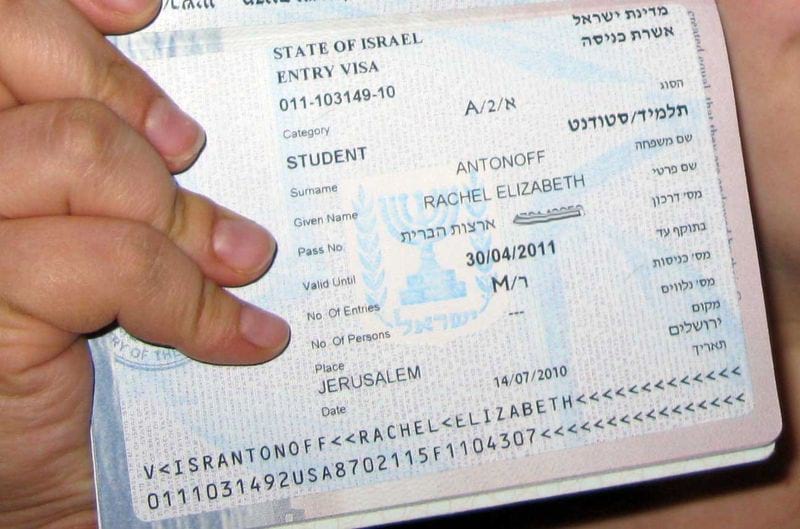What Can You Do If You Don’t Qualify for Israeli Citizenship or Permanent Residency?
In Israel—as in many other countries that attract immigrants with a favorable climate and socio-economic conditions—immigration regulations outline the rights and limitations for temporary or permanent residence.
In general terms, the legal stay in the country is categorized by types of visas, which can be grouped as follows:
- Work visas, allowing temporary residence for a specific purpose. Once the reason for being in Israel expires, the right to stay expires as well.
- Humanitarian visas, granted to individuals seeking asylum or protection; over time, these may lead to residency.
- Family reunification visas, which allow spouses, children, or parents of Israeli citizens to apply for residency or citizenship.
- Student visas.
For your convenience, we’ve structured this guide according to these categories so you can easily identify the information most relevant to your personal situation.
Navigating Israeli immigration procedures on your own can be time-consuming, confusing, and often leads to unnecessary bureaucracy or even unjustified refusals.
Our company provides professional guidance at every stage of the visa and Aliyah process, ensuring your application is prepared correctly from the outset and meets all Israeli legal and administrative requirements. With experienced support, you avoid costly mistakes, reduce delays, and significantly increase your chances of approval.
1. Work and Education Visas
1.1. B/1 Work Visa (up to 5 years) can be granted to individuals who are eligible for Israeli citizenship under the Law of Return.
1.2. Athletes may be invited by teams they’ve signed with. The athlete will receive a B/1 visa, and accompanying family members a B/2 visa.
1.3. Professions eligible for a B/1 visa include:
- Construction
- Agriculture
- Elderly and child care
- Manufacturing
- National cuisine specialists
Skilled professionals in various fields may also apply. The visa is employer-sponsored and subject to regulations of the Ministry of Interior. It can be extended up to 63 months.
1.4. Artists must obtain Ministry of Interior approval—even for a single performance.
1.5. Academic institutions may invite lecturers. There are four subcategories under education visas:
- A/2 visa – for undergraduate students (up to 4 years)
- Visiting researchers
- Guest lecturers for conferences or short-term programs
- Lecturers with long-term teaching contracts
1.6. Caregivers for the elderly can be sponsored by private individuals without intermediaries. Visas are renewable up to 5 years.
2. Family Reunification
2.1. Mixed couples where one partner is an Israeli citizen and the other is not.
In such cases, the non-citizen spouse may apply for citizenship through a graduated process lasting 4.5 to 7 years. During this period, authorities verify the authenticity of the relationship.
In the meantime, the non-Israeli spouse may receive a residence visa and work permit.
For more information about the graduated procedure for obtaining legal status in Israel based on marriage, click here.
2.2. Couples married for less than one year at the time of applying under the Law of Return (1951)—when only one of the spouses qualifies for citizenship.
The non-Jewish spouse will typically receive an A/5 temporary residency visa for one year, which can be extended. If the relationship is verified, permanent status may follow.
2.3. Parent of a lone soldier (serving in the IDF without close family in Israel).
One parent may receive an A/5 visa for up to 5 years, renewed annually. The process must begin while the soldier is still in mandatory service (after at least one year). After 3 years, the parent may be eligible for permanent residency.
2.4. Elderly parent of an Israeli citizen may be eligible for residency if they are over 65 (women) or 67 (men), and live alone in their country of origin without a spouse or other children.
2.5. Great-grandchild of a Jew (4th generation) who immigrates to Israel with parents under the Law of Return can receive an A/5 visa for one year. If the family’s center of life remains in Israel for 3 years, they may apply for citizenship before the child turns 18.
2.6. Adopted child (adopted before the parents made Aliyah) may receive Israeli citizenship just like a biological child under the Law of Return. If the adoption occurred shortly before immigration, authenticity of the adoption may be verified.
2.7. A minor eligible for citizenship under the Law of Return who arrives alone or with one parent, without the consent of the other, will receive an A/5 visa until age 18. Citizenship may be granted if consent is later obtained.
3. Humanitarian Visas
3.1. Foreign spouses of Israeli citizens whose graduated procedure was terminated due to domestic violence, divorce (with joint children), or death of the Israeli spouse, may submit a humanitarian application for legal status.
3.2. Refugees from countries recognized by the Israeli Ministry of Interior (with official UNHCR documentation) may apply for legal status to remain in Israel.
4. Other Categories
4.1. Descendants of Righteous Among the Nations (who saved Jews during WWII) may receive a B/1 visa for up to 5 years.
4.2. Volunteers in the IDF, kibbutzim, or nonprofit organizations may receive a B/4 visa for 6 to 24 months (up to 24 months for faith-based or social service organizations). Volunteers eligible for citizenship may receive a B/4 visa for up to 3 years.
Final Notes
This article outlines approximately 95% of all possible legal residency categories in Israel.
For a complete understanding, we recommend reviewing our separate article on obtaining Israeli citizenship.
Please note: we have intentionally avoided listing exact legal criteria and instead provided a general overview of visa categories and the types of applicants they are intended for.
For a personalized legal consultation, feel free to contact our office.



